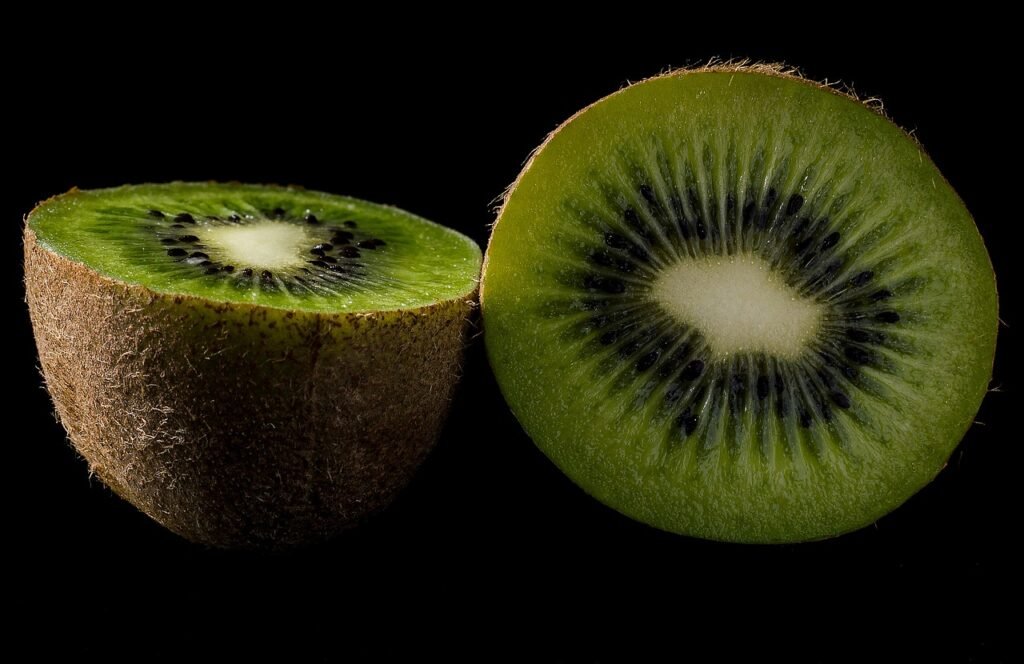Is there a secret connection between tropical fruits and a healthy digestive system? Well, it turns out that these delicious fruits may just hold the key to keeping your gut in tip-top shape. Packed with essential nutrients and natural enzymes, tropical fruits such as pineapples, papayas, and mangoes have long been celebrated for their potential benefits on digestion. So, if you’ve ever wondered if there’s a link between these exotic fruits and your digestive health, get ready to be pleasantly surprised.

This image is property of pixabay.com.
1. Introduction
What is digestive health?
Digestive health refers to the overall well-being and optimal functioning of the digestive system, which includes the esophagus, stomach, small intestine, large intestine, and other associated organs. It involves the efficient breakdown, absorption, and elimination of food, as well as the maintenance of a healthy gut flora.
Importance of digestive health
Maintaining good digestive health is crucial for your overall well-being. A healthy digestive system ensures that you can properly digest and absorb nutrients from your food, which is essential for your body to function at its best. It also plays a key role in immune system function, as a large portion of our immune system is located in the gut. Furthermore, a healthy gut can improve mood and mental health.
Role of diet in digestive health
Diet plays a fundamental role in maintaining digestive health. The foods we consume can either promote or hinder the proper functioning of our digestive system. An unhealthy diet, consisting of highly processed foods, saturated fats, and low fiber, can lead to various digestive disorders such as constipation, diarrhea, and bloating. On the other hand, a balanced and nutritious diet, rich in fruits, vegetables, and whole grains, can support optimal digestion and contribute to overall digestive health.
2. Overview of Tropical Fruits
Definition of tropical fruits
Tropical fruits are a category of fruits that are typically grown in tropical regions, characterized by warm climates and abundant rainfall. These fruits are known for their vibrant colors, unique flavors, and high nutrient content. They encompass a wide variety of fruits, including bananas, pineapples, mangoes, papayas, and guavas, among many others.
Common examples of tropical fruits
Some common examples of tropical fruits include:
-
Bananas: A widely consumed and versatile fruit, bananas are rich in potassium, vitamin B6, and dietary fiber.
-
Pineapples: Known for their sweet and tangy flavor, pineapples are packed with vitamin C, manganese, and bromelain, an enzyme that aids digestion.
-
Mangoes: These juicy fruits are a rich source of vitamin C, vitamin A, and dietary fiber. They are prized for their tropical, sweet taste.
-
Papayas: With their vibrant orange color and unique flavor, papayas are high in vitamin C, vitamin A, folate, and papain, an enzyme that aids in digestion.
-
Guavas: Guavas are small tropical fruits that are rich in vitamins A and C, fiber, and folate. They have a sweet and tangy flavor.
3. Nutritional Composition
Fiber content in tropical fruits
Fiber is a crucial component of a healthy diet and plays a significant role in maintaining digestive health. Tropical fruits are generally high in dietary fiber, which can support regular bowel movements, aid in digestion, and promote satiety. Some tropical fruits that are particularly rich in fiber include bananas, mangoes, and guavas.
Vitamins and minerals in tropical fruits
Tropical fruits are known for their rich vitamin and mineral content. They are abundant sources of vitamins A and C, which are important for immune function, skin health, and overall well-being. Additionally, tropical fruits provide essential minerals such as potassium, which is essential for maintaining proper electrolyte balance, and magnesium, which plays a role in muscle and nerve function.
4. Fiber and Digestive Health
Role of fiber in digestive health
Fiber is a type of carbohydrate that cannot be digested by the human body. However, it plays a crucial role in maintaining digestive health. Consuming an adequate amount of fiber can promote regular bowel movements and prevent constipation by adding bulk to the stool. It can also assist in weight management by promoting satiety and reducing the risk of overeating. Additionally, fiber acts as a prebiotic, providing nourishment for beneficial gut bacteria, which supports a healthy gut microbiota.
Types of fiber in tropical fruits
Tropical fruits contain different types of fiber, including soluble and insoluble fiber. Soluble fiber, found in fruits like bananas and mangoes, forms a gel-like substance in the digestive tract, which can help regulate blood sugar levels and lower cholesterol. Insoluble fiber, abundant in fruits like guavas, adds bulk to the stool and promotes regular bowel movements.
Effects of fiber on digestion
Consuming an adequate amount of fiber from tropical fruits can have several positive effects on digestion. Fiber helps to soften and add bulk to the stool, promoting regular bowel movements and preventing constipation. It also aids in maintaining a healthy gut environment by providing nourishment for beneficial bacteria in the gut. Additionally, fiber can help regulate blood sugar levels and promote a feeling of fullness, which can be beneficial for weight management.

This image is property of pixabay.com.
5. Tropical Fruits and Gut Microbiota
Importance of gut microbiota
The gut microbiota, also known as the gut microbiome, refers to the trillions of bacteria, fungi, and other microorganisms that reside in our digestive tract. These microorganisms play a crucial role in maintaining digestive health, supporting nutrient absorption, defending against harmful pathogens, and regulating the immune system.
Effects of tropical fruits on gut microbiota
Tropical fruits, with their high fiber content, can have a positive impact on the gut microbiota. The fiber in tropical fruits acts as a prebiotic, which means it serves as a food source for the beneficial bacteria in the gut. By promoting the growth of these beneficial bacteria, tropical fruits can help maintain a healthy balance of microorganisms in the gut, supporting optimal digestion and overall gut health.
6. Anti-Inflammatory Properties
Inflammation and digestive disorders
Inflammation is a natural immune response that helps the body fight against harmful pathogens and repair damaged tissues. However, chronic inflammation can contribute to the development of various digestive disorders, such as inflammatory bowel disease (IBD), irritable bowel syndrome (IBS), and gastritis. Managing inflammation is crucial for maintaining digestive health.
Anti-inflammatory compounds in tropical fruits
Many tropical fruits contain compounds with anti-inflammatory properties. For example, pineapples contain bromelain, an enzyme known for its anti-inflammatory properties. Bromelain has been studied for its potential to reduce inflammation and alleviate symptoms associated with digestive disorders. Papayas also contain papain, an enzyme that has been shown to have anti-inflammatory effects. These anti-inflammatory compounds in tropical fruits can aid in managing inflammation and promoting digestive health.

This image is property of pixabay.com.
7. Antioxidant Effects
Oxidative stress and digestive health
Oxidative stress occurs when there is an imbalance between the production of harmful free radicals and the body’s ability to neutralize them with antioxidants. Chronic oxidative stress can contribute to the development of various digestive disorders, including gastrointestinal cancers, gastritis, and peptic ulcers. Antioxidants are crucial in combating oxidative stress and supporting overall digestive health.
Antioxidants in tropical fruits
Tropical fruits are rich in antioxidants, which can help combat oxidative stress and protect against digestive disorders. Vitamin C, for example, is a potent antioxidant found in many tropical fruits, including mangoes, guavas, and papayas. Other antioxidants, such as beta-carotene found in mangoes and papayas, and flavonoids found in citrus fruits like oranges, can also have protective effects on the digestive system. Including a variety of tropical fruits in your diet can provide a wide array of antioxidants to support digestive health.
8. Digestive Enzymes
Types of digestive enzymes
Digestive enzymes are proteins that help break down food into smaller molecules, allowing for easier absorption and digestion. There are several types of digestive enzymes, including proteases, lipases, and amylases, each responsible for breaking down different types of food components.
Presence of digestive enzymes in tropical fruits
Some tropical fruits, such as pineapples and papayas, naturally contain digestive enzymes. Pineapples contain bromelain, a mixture of digestive enzymes that aids in protein digestion. These enzymes can help break down proteins and facilitate their absorption. Papayas contain papain, a proteolytic enzyme that assists in breaking down proteins in the stomach. Including tropical fruits in your diet can provide natural sources of digestive enzymes, aiding in the digestion and absorption of nutrients.

9. Common Digestive Issues Improved by Tropical Fruits
Constipation relief
Tropical fruits, with their high fiber content, can help relieve constipation and promote regular bowel movements. The insoluble fiber found in fruits like guavas and bananas adds bulk to the stool, making it easier to pass. Additionally, the soluble fiber found in fruits like mangoes and papayas absorbs water, softening the stool and easing its passage through the digestive tract.
Diarrhea management
While high-fiber foods are generally recommended for constipation, certain tropical fruits can also be beneficial in managing diarrhea. Bananas, for example, are easy to digest and can help normalize bowel movements. They contain pectin, a soluble fiber that can absorb excess water in the intestines and help solidify loose stools.
Bloating and gas reduction
Excessive gas and bloating can be uncomfortable and bothersome. Some tropical fruits, such as pineapples and papayas, contain enzymes like bromelain and papain, which can aid in breaking down proteins and reducing bloating. Additionally, the fiber content in tropical fruits can help regulate digestion and prevent gas buildup.
10. Studies and Evidence
Research supporting the link
Numerous studies have explored the potential link between tropical fruits and digestive health. For example, a study published in the “Journal of Nutrition and Food Sciences” found that consuming mangoes helped improve digestive health by increasing the abundance of beneficial gut bacteria. Another study published in the “British Journal of Nutrition” reported that papaya consumption led to improved gastrointestinal function and reduced symptoms of bloating and gas.
Case studies and clinical trials
Case studies and clinical trials have also provided evidence of the positive effects of tropical fruits on digestive health. A case study published in the “International Journal of Food Sciences and Nutrition” demonstrated that incorporating pineapple into the diet of individuals with gastritis helped reduce inflammation and alleviated gastrointestinal symptoms. Clinical trials have shown that the consumption of bananas can improve symptoms of diarrhea due to their high pectin content.
In conclusion, there is indeed a link between tropical fruits and digestive health. These fruits provide a wide range of nutritional benefits, including high fiber content, essential vitamins and minerals, anti-inflammatory properties, antioxidant effects, and natural digestive enzymes. Incorporating a variety of tropical fruits into your diet can support optimal digestion, relieve common digestive issues, and promote overall digestive health.


